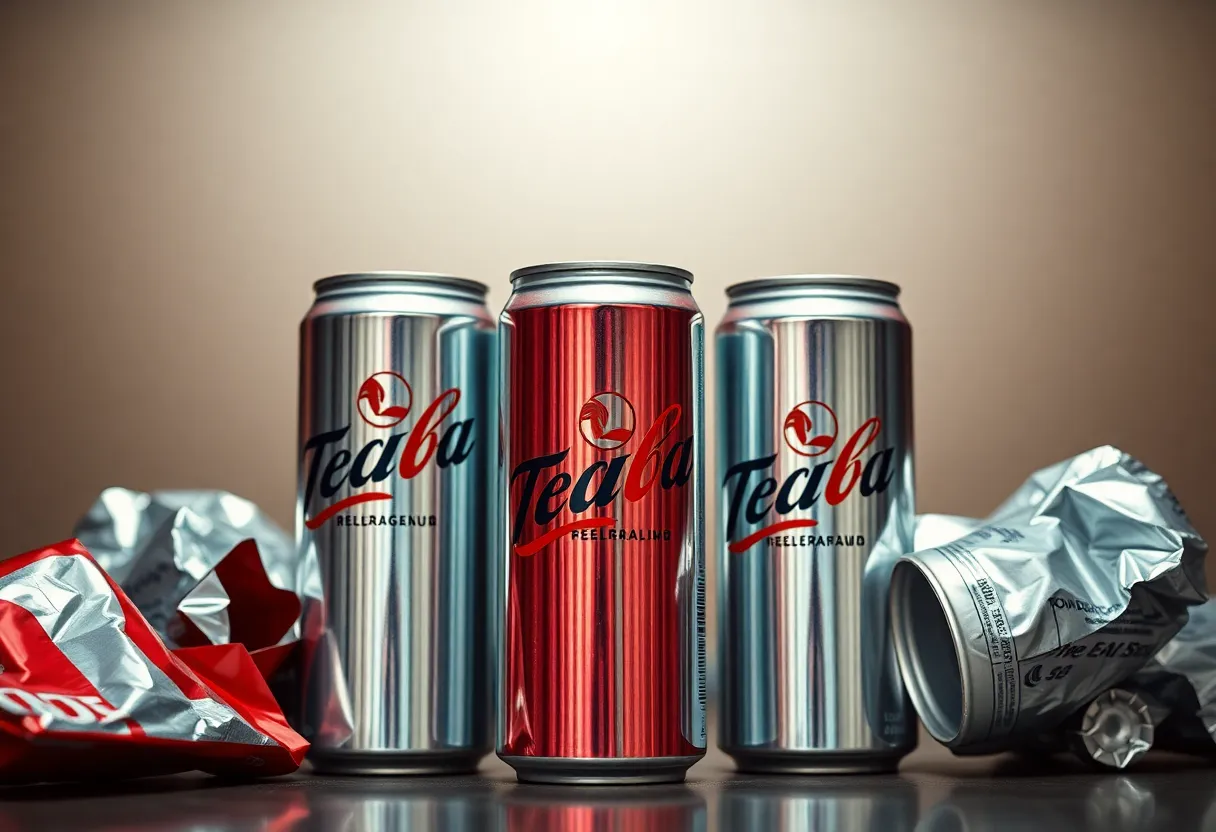News Summary
AriZona Iced Tea’s enduring 99-cent price may be jeopardized due to proposed tariffs on imported aluminum, which could raise production costs significantly. Founder Don Vultaggio highlighted the financial implications of the 50% tariff, which threatens the company’s long-standing pricing strategy. With rising aluminum prices and pressures on the market, AriZona may struggle to maintain affordability for consumers, challenging its operational model built on vertical integration and recycled materials. As discussions progress, the impact of these tariffs on both the brand and consumers is closely watched.
Arizona – The future of AriZona Iced Tea’s iconic 99-cent price may be at risk due to newly proposed tariffs on imported aluminum. The company’s founder and chairman, Don Vultaggio, has expressed concern that the proposed 50% tariff could significantly affect the cost of producing their distinctive tallboy cans, which have been priced at the same level for over 30 years since the brand’s inception in the 1990s.
AriZona Iced Tea, which sells more than 2 billion cans annually and generates over $4 billion in sales, faces the potential for price adjustments as rising costs loom. The company has been able to absorb costs without passing them on to consumers in the past, but Vultaggio noted that this may change if aluminum prices continue to rise due to the tariffs and other market pressures. Approximately 100 million pounds of aluminum are utilized in the production of AriZona’s cans, with around 20% of that aluminum imported from Canada, which would be affected by the tariffs.
As the discussion around the tariffs progresses, domestic aluminum manufacturers are also likely to increase their prices, impacting companies like AriZona. Vultaggio highlighted that discussions about tariffs have already led to price increases, making it difficult for the company to maintain its long-standing pricing strategy. Even though AriZona’s operational model includes a strong manufacturing process based on vertical integration and the use of recycled materials, the looming tariffs present significant challenges.
The company’s impressive financial standing as a debt-free, highly profitable enterprise has thus far allowed it to manage expenses effectively. This financial health has been crucial in helping AriZona maintain its affordability through multiple U.S. economic recessions since the brand’s launch. Vultaggio has expressed a desire to protect the interests of consumers while continuing to support American manufacturers. He believes that the administration overseeing tariffs should ensure fair pricing practices rather than allowing domestic producers to exploit market conditions. He emphasized the importance of maintaining affordable access for consumers and the potential adverse effects that tariffs may have on everyday products.
The introduction of the proposed aluminum tariffs not only affects AriZona but also highlights the broader implications of trade policies on commodity costs and consumer pricing across various industries. With the potential for increased production costs to push higher prices onto consumers, there is growing concern about whether such measures will ultimately support or harm domestic production capabilities.
AriZona’s ability to hold off on price increases in the face of rising aluminum costs reflects its commitment to providing value to consumers. However, should these pressures continue, the company may be forced to make difficult decisions in order to sustain operations and profitability. The uncertainties surrounding the tariffs and their effects on materials sourcing could significantly impact the brand and its loyal customer base, which has relied on the affordability of its products.
In conclusion, the proposed tariffs on imported aluminum pose a potential threat to the well-established pricing strategy of AriZona Iced Tea, an iconic brand that has successfully catered to budget-conscious consumers for decades. As the situation develops, both the company and its customers will be closely monitoring the impact of these trade policies on production costs and retail prices.
Deeper Dive: News & Info About This Topic
- The New York Times: Arizona Iced Tea’s 99-Cent Price at Risk
- Wikipedia: Tariff
- Fox Business: 30-Year Arizona Iced Tea Price May End
- Google Search: Arizona Iced Tea tariffs
- People: Trump Tariffs Impact on Arizona Iced Tea Prices
- Google Scholar: Arizona Iced Tea tariffs
- AZ Central: Op-Ed on Tariffs
- Encyclopedia Britannica: Tariff
- 9 News: Arizona Iced Tea Price Implications
- Google News: Arizona Iced Tea

Author: STAFF HERE PHOENIX WRITER
The PHOENIX STAFF WRITER represents the experienced team at HEREPhoenix.com, your go-to source for actionable local news and information in Phoenix, Maricopa County, and beyond. Specializing in "news you can use," we cover essential topics like product reviews for personal and business needs, local business directories, politics, real estate trends, neighborhood insights, and state news affecting the area—with deep expertise drawn from years of dedicated reporting and strong community input, including local press releases and business updates. We deliver top reporting on high-value events such as the Waste Management Phoenix Open, Cactus League Spring Training, and Arizona State Fair. Our coverage extends to key organizations like the Greater Phoenix Chamber of Commerce and Visit Phoenix, plus leading businesses in technology and healthcare that power the local economy such as Intel and Banner Health. As part of the broader HERE network, including HERETucson.com, we provide comprehensive, credible insights into Arizona's dynamic landscape.





